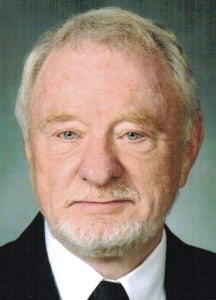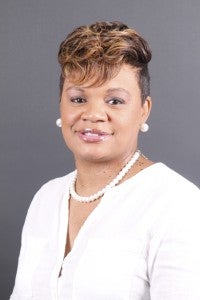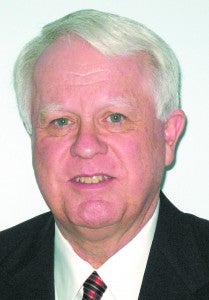Two challenge Hughes for Salisbury seat on RSS board
Published 12:05 am Thursday, October 13, 2016
By Rebecca Rider
rebecca.rider@salisburypost.com
SALISBURY — Incumbent Chuck Hughes almost ran for the Rowan-Salisbury Board of Education’s seat 5 uncontested. But former assistant superintendent of operations Gene Miller and founder of Gemstones Academy Alisha Byrd stepped up to challenge him just before the filing period closed.
The three are running for the seat that represents Salisbury High School, Knox Middle School and Overton and Isenberg elementaries.
Byrd said she believes her experience working with students and in human resources gives her a unique perspective on curriculum, as well as experience with policy. Byrd said she is committed to diversity, inclusion, equality and fairness for all students. Miller said his experience in working with finance and the 31 years he worked in education qualify him for the seat.
“I bring all that experience and longevity with the system,” he said.
For Hughes, it’s his four years of experience on the board, and his good working relationship with the other six members.
If elected, Byrd said she’d like to see more support and compensation for teachers, as well as developing a curriculum that excites students, enhances critical thinking skills and encourages deeper parental involvement. Miller said he simply wants to make the community better. Hughes said he has several goals, including finishing the new western elementary, working toward a new building for Knox Middle, enhancing the restorative classroom program and adding security to schools.
Current Rowan-Salisbury Schools officials have cited a growing maintenance burden and number of aging buildings coupled with a small capital needs budget as a cause for concern, but those running for the Board of Education have different ideas about how the issue should be addressed.
Miller said that school maintenance has always been an issue.
“I don’t how you would ever have enough money to do everything that needed to be done there,” he said.
When he served as the assistant superintendent of operations for Rowan-Salisbury Schools, Miller said he used to take the budgeted funds and use them to address the most critical needs first. It’s something he would like to see happen again. Miller also suggested working with Rowan County commissioners to float a bond referendum in a few years, after current bonds are paid off.
Byrd also said she’d like to see the school board working with county commissioners to float a bond referendum in a few years. She said she would rather see another bond versus shutting a school down.
“Something has to be done, but I wouldn’t suggest closing schools or reassigning students,” she said.
Hughes said he wasn’t sure that there was anything immediate that could be done to address the issue.
“Not because of lack of need, but because of lack of funding and lack of planning,” he said.
He felt that the system needed a comprehensive 10- to 15-year plan for those needs. Hughes added that he was against closing schools unless they were merged into a new building, like the new western elementary school.
When it comes to the significance of the latest round of test scores, candidates varied. Released Sept. 1, Rowan-Salisbury Schools saw enough improvement in its 2015-16 test scores to be taken off the state list of low-performing schools. For some, it’s a cause for celebration — but not for others.
Byrd said that the district still had a high number of low-performing schools, and said she felt that the system was “stagnant.”
But Miller said he thought the scores were worth celebrating.
“You take your successes where you can get them,” he said.
The important thing was what would happen next year. Miller also said that he thought lower test scores were, in part, because of the high number of district students in poverty.
“So we’ve got an uphill battle,” he said.
For Miller, the key to improving student growth and improving test scores is to improve teacher retention and provide a stable learning environment for students.
Hughes said the test scores “weren’t impressive” but mentioned that the situation reminded him of a sports team that lost 15 games, but won its 16th — they would celebrate anyway.
“We took a small step, but that small step meant a lot to the school system,” he said.
For the past several years, he said, the test scores have been a “kick in the butt,” but this year was a “pat on the back.”
But when it comes to the one-to one initiative not everyone is sure that technology is the answer.
“I think it takes away from teachers teaching kids,” Byrd said.
Byrd said that she often sees students coming to Gemstones using the devices to play games instead of complete their schoolwork. The devices have often been touted as a cure-all for meeting the needs of every student and closing gaps, but Byrd said she doesn’t think that they should be the catalyst for change.
Miller said he was skeptical of the program at first, and is still concerned with its associated costs — but to him, it’s been working.
“You’ve got to be technologically advanced to prepare students to get out into the real world,” he said.
These days, you can’t even get a job at McDonald’s if you can’t operate a computer, he said.
Hughes said that he was reluctant about the program when it started three years ago, but now he thinks it’s been very effective. It makes things easier for the teachers, and students seem to enjoy it. However, he said, he does not promote removing books from school libraries and replacing them with technology.





